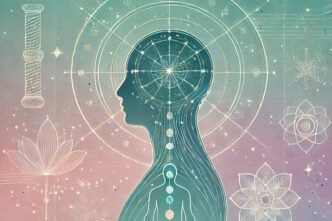One’s physical, emotional, and social well-being can all be seriously disrupted by mental health issues including addiction. A crucial first step toward recovery and healing is realizing when one should consult a specialist. Programs for rehabilitation, like those available in Sydney, give people battling physical health problems, mental health concerns, and drug use disorders specific treatment. Understanding the indicators of a possible need for rehabilitation helps people and their loved ones to start the process of recovery and lead better quality of life.
The Fight to halt
The incapacity of you to cease destructive activities on your own is among the most obvious and quick signs that you need rehabilitation. Whether it’s a substance abuse problem, obsessive conduct, or an emotional habit, the fact that one fails to stop despite several attempts indicates a major indication of professional intervention required. Rehabilitation programs create controlled surroundings that provide a supporting structure for people to break out from the cycle of dependency. Experienced personnel and evidence-based treatments abound in these facilities to enable people to solve the fundamental reasons of their problems.
Physical and Psychological Decline
Physical and mental well-being can be seriously compromised by untreated mental health illnesses, prolonged stress, and substance misuse. Frequent sicknesses, chronic tiredness, weight loss, or indicators of organ damage could all point to a worsening addiction or mental health issue for a person. Medical detox programs housed at rehabilitation facilities center on properly guiding people through the withdrawal process, tracking their health, and rendering the required treatments for both physical and psychological recovery.
Tensed Relationships
Addiction or mental health issues frequently cause conflict in relationships with friends, family, and coworkers. Personal relationships may suffer from communication failures, more emotional pain, and a lack of trust. Many rehabilitation programs include family therapy, particularly in Sydney where support systems are stressed. Including loved ones in the healing process helps people to reestablish these important relationships, handle underlying family problems, and create a more encouraging surroundings for long-term recovery.
Diminished Performance in School or the Office
Addiction or mental health problems can serve as a wake-up call when they start to affect obligations at work or in education. Missed deadlines, poor performance, loss of focus, and even erratic behavior can point to a need for recovery. Professional support can help individuals rediscover their drive, enhance focus, and acquire the coping skills needed to manage the demands of their employment or studies. Rehabilitation facilities situated in Sydney provide individualized programs designed for people at various phases of their academic and career life.
Using Drugs to Reduce Stress
Common warning signs of developing dependence are the use of drugs or alcohol to ease anxiety, tension, or depression. Although self-medication with drugs could offer short respite, it finally aggravates the issue and results in more major mental health issues and physical dependence. Sydney’s and other cities’ rehabilitation initiatives teach better coping strategies and offer therapeutic substitutes to target the underlying causes of anxiety. These initiatives are meant to enable people control of their stress without turning to negative drugs.
Legal Problems and Behavioral Effects
Legal problems include drug-related charges or arrests for drunk driving under influence usually result from poor judgment and decision-making brought on by addiction. Many people find that facing legal penalties serves as a wake-up call. Offering court-ordered treatment programs and support for negotiating the legal system, rehabilitation institutions are ready to help people handling legal issues. The objective is to correct the actions that resulted in legal problems and offer the means required for a more steady future and long-term recovery.
Tolerance and Withdrawal Symptoms
Classic symptoms of addiction are tolerance and withdrawal. An individual signals that their body has become physically dependent when they need more of a substance to get the intended effects. The likelihood of overdose and major medical problems rises as tolerance grows. Withdrawal symptoms—which could include anxiety, nausea, shakes, and insomnia—highlight even more the need of medical intervention. Detoxification-oriented rehabilitation institutions offer safe, medically supervised settings to control withdrawal symptoms and assist people in safely moving into recovery.
Feeling Out of Control
Another strong sign that one needs rehabilitation is a sensation of losing control over one’s decisions, ideas, and behavior. People who feel helpless against their addictive habits sometimes discover themselves caught in a self-destructive loop. Rehabilitation offers a disciplined setting where people may learn about the psychology of addiction, get back in control over their life, and create plans to retake their agency. By means of therapy, counseling, and support groups, individuals can resolve the fundamental psychological and emotional elements causing their lack of control.
The Call for Transformation
The desire for change is maybe one of the most important signs that one should start recovery. A great motivation is realizing that although a better life is within reach but feeling powerless to get it without assistance. Emphasizing human development, skill acquisition, and long-term healing, many rehabilitation facilities—including those in Sydney—offer compassionate treatment. Starting that initial step toward professional treatment allows people to gain the tools and support required to bring about significant improvements in their life.
Selecting the Correct Rehabilitation Program
The recovery process depends critically on the choice of rehabilitation facilities. From mental health services to addiction treatment, Sydney boasts a range of rehabilitation centers meeting varied needs. While some centers give reasonably priced, community-based support, others offer luxurious treatment. Researching a program that fits your financial condition, tastes, and demands is crucial. Many rehabilitation facilities also have great value in their aftercare programs, which enable people to keep their improvement after official treatment.
FAQ
What are the signs that I need rehabilitation?
Signs include an inability to stop harmful behaviors, declining health, relationship struggles, and using substances to cope with stress. Legal troubles and withdrawal symptoms also indicate the need for professional help.
How do I find the right rehab program?
Look for a program that aligns with your needs, preferences, and budget. Research options, and consider factors like aftercare services and the facility’s specialization in addiction or mental health treatment.
Is rehabilitation covered by insurance?
Many rehab centers accept insurance, but coverage varies. Contact your provider to understand your benefits and options.








